
Today's Top 10 is a guest post from Christian Hawkesby, head of fixed income at Harbour Asset Management.
As always, we welcome your additions in the comment stream below or via email to david.chaston@interest.co.nz.
And if you're interested in contributing the occasional Top 10 yourself, contact gareth.vaughan@interest.co.nz.
This is our final guest Top 10 for 2014. We'd like to thank all our contributors for their efforts this year. Our Guest Top 10s will return on January 23.
See all previous Top 10s here.

1. FOMC decision: Just watch the Q&A
Forget all about the wording of "considerable time" or "patient". Don’t get hang up on the "dot plot".
The best thing to do is watch Janet Yellen’s performance in the Q&A from around 20 minutes into the video.
The US Fed clearly expects and wants to start normalising interest rates in 2015.
They appear positive and optimistic, attentive of oil and Russia but not alarmist.
She strongly discouraged the view that they would only start lifting rates at a meeting that has a scheduled press conference.
This makes April a live meeting. Importantly, Yellen must have said about 20 times that decisions are data dependent.
This highlights that the Fed is not feeling ‘dovish’, but rather conventional and scientific.
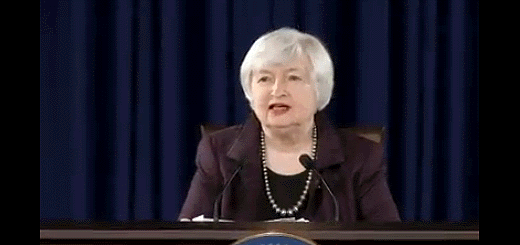
2. Optimal control and US interest rates
One of the main influences of the Fed’s decision may have been internal research on “Optimal Control”, which has been championed by Janet Yellen.
As illustrated by the Wall Street Journal, the latest update of this research points to moving interest rates up sooner in the US, but potentially having a shallower peak in the interest rate cycle.
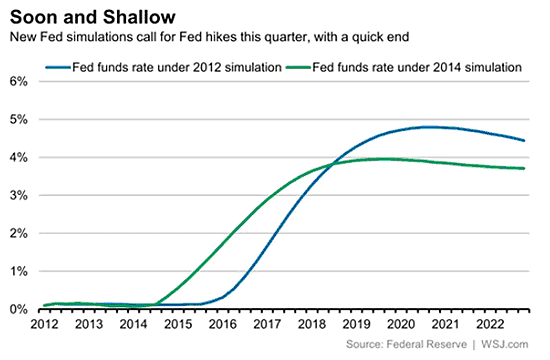
3. Missing inflation
One of the motivations for interest rates peaking at lower levels is the absence of inflation, which appears to be a global phenomenon.
The RBNZ’s Monetary Policy Statement illustrated this theme nicely in Box B, which highlighted the absence of domestic inflation pressures despite growing signs of capacity pressures in the economy (captured below by the Phillips Curve).
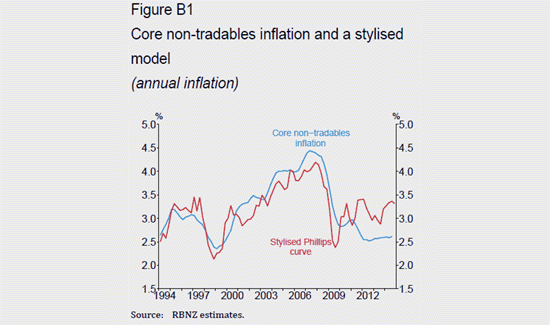
4. 25 years of inflation targeting
The central banking world converged on Wellington earlier this month to celebrate 25 years of inflation targeting.
In a sign of flattery, New Zealand's inflation targeting regime has been emulated around the world.
However, a Bank of England report highlights the wide range of approaches across 27 countries.
Watch out for a debate about the appropriate level of inflation target, given a growing discussion that targets are too low.
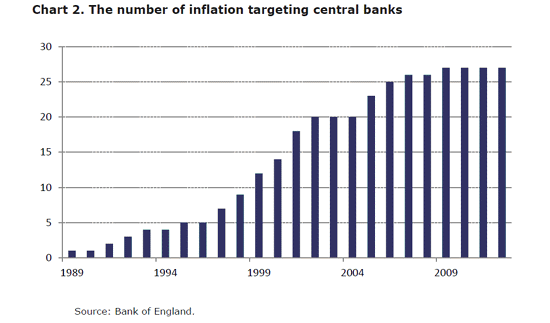
5. Confidence enhancing RBA policy
RBA Governor, Glen Stevens, gave a wide ranging and insightful interview with the Australian Financial Review, outlining his approach to central banking.
To him, in the current gloomy Australian environment, where the price or availability of credit is not a constraint, he is focused on how best to support confidence.
In my view, over the past year or so, I have been asking myself what can we do that will be most conducive to supporting confidence, predictability, the sense that people can make some plans for their business, their own life, whatever it might be. ... I don’t think we see many people at all saying, “Look, the cost of money is too high”, or, “I can’t get money.” I don’t think that’s really the problem now. If you think that confidence is the thing that is kind of the missing ingredient, then what can we do for confidence? The answer that I came up with is we could be steady and predictable and be clear about that. So that’s what we have sought to do. And I think that was the right call.
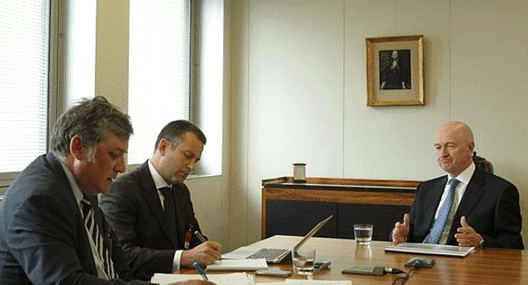
6. The fall in oil prices – bad news or good news?
When asked about fresh worries about global weakness, Stevens retorted ...
But is it really that weak? I mean, you know, people are making quite a lot of the fall in oil prices, which is obviously bad news if you are a producer. But actually, historically, low oil prices have been good for the global economy. In my opinion on the whole, this is good news, not bad news.
His analysis was backed up by research for the US economy by IHS Insight published in the Wall Street Journal.
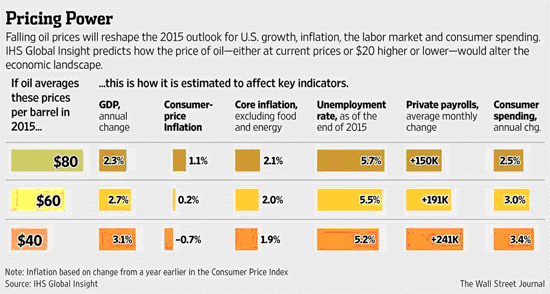
7. The fall in oil prices – winner and losers
While developed world consumers are the main winners from the fall in oil prices, it has been emerging market producers that have been the main losers so far.
This has been most noticeable in the collapse of Russian Ruble.
Overnight the Russian first deputy central bank governor, Sergey Shvetsov, said “we couldn’t imagine what is happening in our worst nightmare a year ago”.
So if there are risks to watch in 2015 around the central case ‘good news’ story for developed countries, they are likely to come from emerging market strains causing a wider geo-political disturbance.
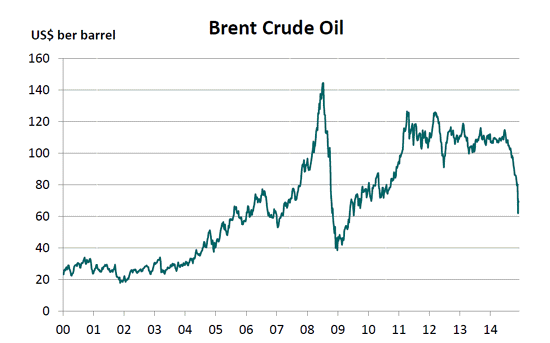
Source: Bloomberg.
8. Dairy prices take a breather
After a sharp fall over 2014, the Global Dairy Trade (GDT) Price Index rose a modest 2.4% on Wednesday.
However, the big question is dairy prices will recover sufficiently to justify Fonterra’s forecasts for the farmgate milk price?
The NZX’s AgriHQ website provides a ready reckoner tool to help you calculate a farmgate milk price based on dairy commodity prices, exchange rate and estimated costs.

9. Fall of the Bond King
One drama that has gripped the investment management community over 2014 has been the management battles at Pimco and eventual departure of both the CEO, Mohamed El-Erian, and founder and Bond King, Bill Gross.
Bloomberg investigative journalist, Mary Childs, interviewed 25 current and former Pimco employees, to pull together a complex picture of the events that led to Gross’s departure.
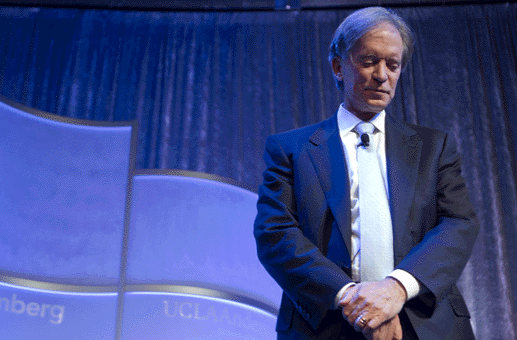
10. Boy genius makes $72m, or does he?
Finally, a news story that captured the imagination this week, following an initial article in New York magazine.
Monday headline: “School boy makes $72m trading stocks”. Tuesday headline: “Boy’s story in doubt”. Wednesday headline: “We made it all up”.
It highlights that active investment management is not all that easy.

2 Comments
Re #1 "This highlights that the Fed is not feeling ‘dovish’, but rather conventional and scientific."
http://www.firstrebuttal.com/2014/12/17/fed-delivers-the-message-that-o…
I used to get a kick out of the cute little children waiting for the Fed Chair to come and deliver presents or coal. So giddy and excited from the anticipation of not knowing who Janet thinks were good boys and girls. Who’s going to be rewarded and who disappointed? And I don’t know how many people asked me today what the Fed will do. My answer was “The same f@#*ing thing they always do, nothing. So stop asking”.
It's a good read.
#2, No by moving sooner you get a shallower peak, at least thats how engineering control would be expected to work.
The problem is this isnt 1 control valve or multiple valves (ie one per sector) you can move differing amounts or not at all. This is lots of valves and we are all gonna close them the same amount even if some valves should be opened jut because one MAYBE too far open.
We welcome your comments below. If you are not already registered, please register to comment
Remember we welcome robust, respectful and insightful debate. We don't welcome abusive or defamatory comments and will de-register those repeatedly making such comments. Our current comment policy is here.